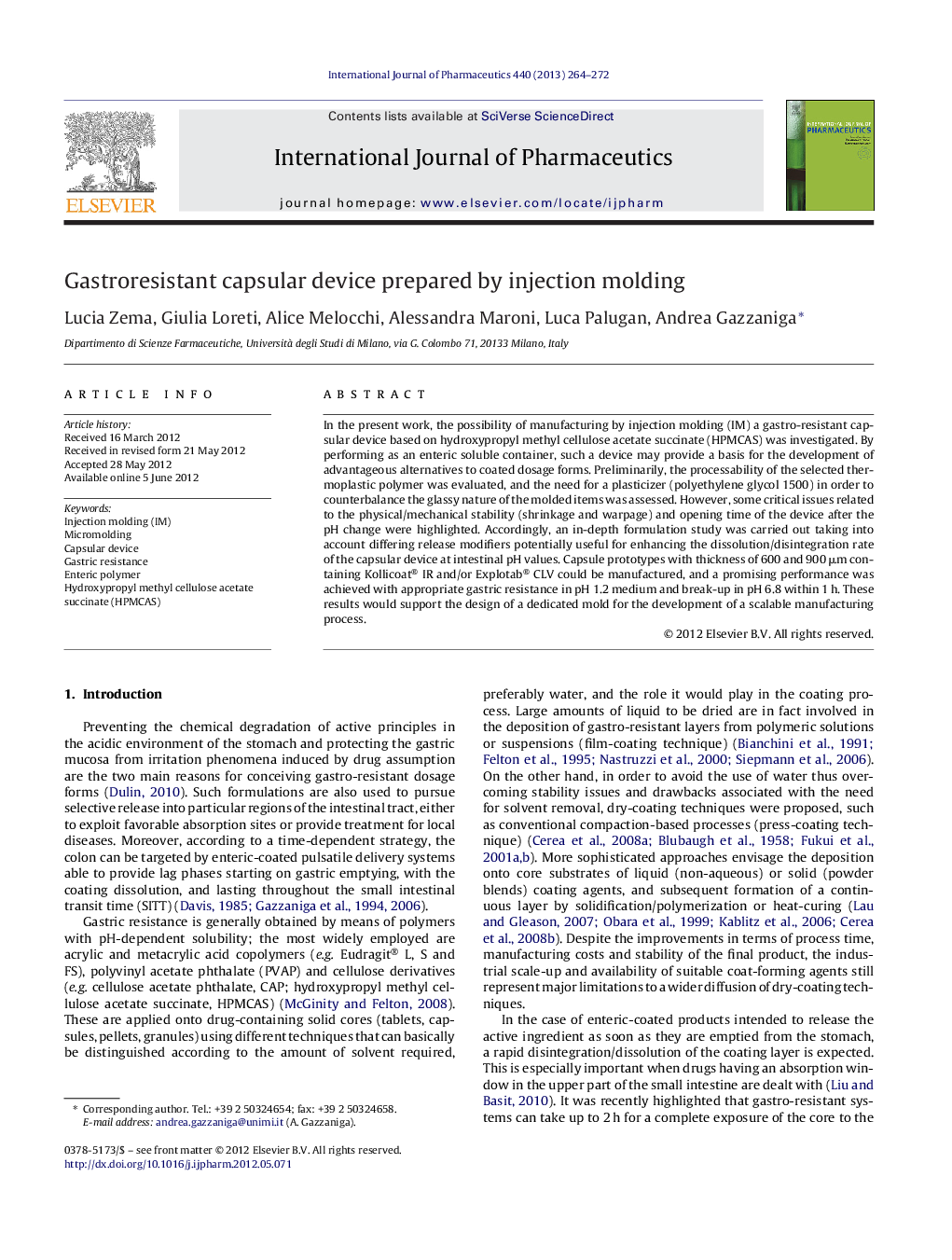| Article ID | Journal | Published Year | Pages | File Type |
|---|---|---|---|---|
| 2502700 | International Journal of Pharmaceutics | 2013 | 9 Pages |
In the present work, the possibility of manufacturing by injection molding (IM) a gastro-resistant capsular device based on hydroxypropyl methyl cellulose acetate succinate (HPMCAS) was investigated. By performing as an enteric soluble container, such a device may provide a basis for the development of advantageous alternatives to coated dosage forms. Preliminarily, the processability of the selected thermoplastic polymer was evaluated, and the need for a plasticizer (polyethylene glycol 1500) in order to counterbalance the glassy nature of the molded items was assessed. However, some critical issues related to the physical/mechanical stability (shrinkage and warpage) and opening time of the device after the pH change were highlighted. Accordingly, an in-depth formulation study was carried out taking into account differing release modifiers potentially useful for enhancing the dissolution/disintegration rate of the capsular device at intestinal pH values. Capsule prototypes with thickness of 600 and 900 μm containing Kollicoat® IR and/or Explotab® CLV could be manufactured, and a promising performance was achieved with appropriate gastric resistance in pH 1.2 medium and break-up in pH 6.8 within 1 h. These results would support the design of a dedicated mold for the development of a scalable manufacturing process.
Graphical abstractFigure optionsDownload full-size imageDownload high-quality image (94 K)Download as PowerPoint slide
